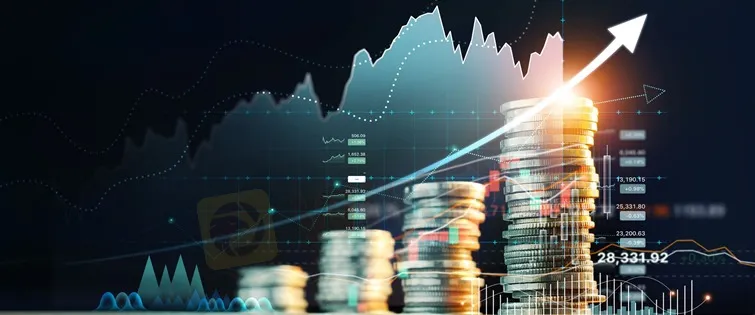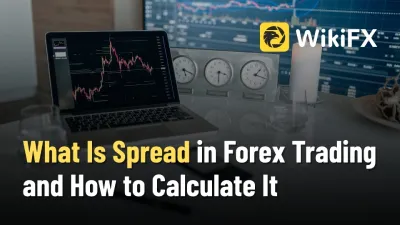Want to Improve Your Forex Trading Success Rate? Get to Know the Five Key Players in the FX Market!
Abstract:This article delves into the primary participants of this colossal market, including importers and exporters, Forex brokers, commercial banks, central banks, and speculators. By understanding the roles of these key players, traders can better navigate the Forex landscape.

The Forex market is the most active, liquid, and largest financial trading market in the world, with daily trading volumes reaching between $6 trillion and $11 trillion. This daily volume is 27 times larger than the global stock market, 12 times that of the global futures market, and 7 times the global bond market. It surpasses the total daily trading volume of all global financial products combined, making it a colossal market unmatched by any other. Additionally, it is growing at an annual rate of 120%. As global financial integration progresses, the Forex market has replaced stocks and futures to become the mainstream financial market worldwide.

As the largest financial trading market globally, the Forex market involves financial investors from all over the world, especially from developed countries. It is also known as the most fair, just, and open market in the world.
So, who are the key players in the Forex market? Today, we will provide a detailed analysis of the five main participants in the Forex market:
1. Importers and Exporters in the Foreign Trade Industry and Other Forex Demanders and Suppliers
Importers and exporters are major demanders and providers of foreign exchange in the Forex market. They need to exchange their local currency for foreign currency to pay for imports and loans, making them demanders of Forex. Conversely, after receiving payment for exports, they exchange foreign currency back into local currency, making them providers of Forex.
However, these providers and demanders do not engage in Forex trading directly but primarily through brokers and commercial banks. Other Forex demanders unrelated to trade include tourists, students studying abroad, international remittances, transportation fees, purchases of foreign securities, and foreign debt payments.
2. Forex Brokers
Forex brokers are companies that specialize in introducing and conducting Forex transactions on behalf of clients, acting as intermediaries. They play a role similar to real estate agents in the housing market, facilitating purchases.
Some brokers directly engage in Forex trading to profit. By maintaining close contacts with Forex banks and demanders, brokers stay updated on market dynamics, facilitate successful transactions between parties, and earn commissions. Forex banks often rely on brokers for their extensive network, information, and transaction experience to find more buyers and sellers.
3. Forex Departments of Commercial Banks
The Forex departments of commercial banks are the core of the Forex market, handling most market transactions. Their main businesses include letters of credit, international remittances, foreign currency deposits, and Forex trading.
Commercial banks participate in Forex trading in two ways:
Acting as intermediaries for client Forex transactions.
Conducting Forex transactions in their own name.
The goals of commercial bank Forex departments are:
Providing comprehensive services to enhance the bank's reputation and attract customers.
Managing their own Forex positions to maintain reasonable levels of each foreign currency, avoiding exchange rate risks.
Earning profits and increasing revenue.
4. Central Banks of Various Countries
Central banks play two roles in the Forex market:
As managers intervening in the Forex market to conduct transactions and influence exchange rate fluctuations, steering the rate changes in favor of the national economy and foreign trade.
Conducting Forex transactions on behalf of the government or major domestic enterprises.
5. Forex Speculators
Forex speculators participate in Forex trading not due to actual Forex needs but to profit from small margin trading through accurate analysis of exchange rate trends and skilled operations.
The Forex market, the largest and most liquid financial trading market in the world, attracts a diverse range of participants, including importers and exporters, Forex brokers, commercial banks, central banks, and speculators. Each player contributes to the market's dynamic nature and immense trading volumes. Understanding these key participants and their roles is crucial for navigating the Forex landscape effectively. Additionally, utilizing tools like WikiFX to verify brokers and ensure trading safety can protect investors from fraud and enhance their trading success. As the Forex market continues to grow and evolve, staying informed and vigilant remains paramount for all traders.

Read more

What Is Spread in Forex Trading and How to Calculate It
Spread Meaning in Forex Guide: Forex spread defines the bid-ask price differential, representing the cost of entering a trade instantly.

Allied Top Review: Scam or Legit Broker?
Allied Top review: Covering regulation, trading platforms, leverage, spreads, deposits, and real trader feedback for informed decisions.

STARTRADER Launches New Global Brand Identity
Global broker STARTRADER refreshes its brand identity, reinforcing trust, growth, and client focus through a modernized visual and strategic repositioning.

WikiFX Wishes You a Happy New Year!
Dear Global Users, Thank you for journeying alongside WikiFX. Every query you make, every review you share, and every piece of feedback you provide serves as the most vital driving force behind our continuous efforts to promote transparency and security in the trading industry.
WikiFX Broker
Latest News
Precious Metals Surge: Central Banks and Fed Outlook Fuel 'Bare-Knuckle' Bull Market
RIFAN FINANCINDO BERJANGKA Review (2025): Is it Safe or a Scam?
Fed’s Paulson Douses Rate Cut Hopes, Strengthening 'Higher for Longer' Case
WAYONE CAPITAL Review 2025: Institutional Audit & Risk Assessment
Is BotBro Legit or a Scam? 5 Key Questions Answered (2025)
The 'Wolf' Strategy: Phantom Tariffs and the Dollar's Resilience
US Forces Capture Maduro in Dawn Raid; Trump Pledges Oil Sector Takeover
Goldman Sachs Strategy: Markets to Turn "Wilder" in 2026
Geopolitical Risk: Tensions Spike as Iran Draws 'Red Line' Against US Intervention Threats
Geopolitical Watch: Iran Economic Crisis Spirals into Deadly Unrest
Rate Calc

